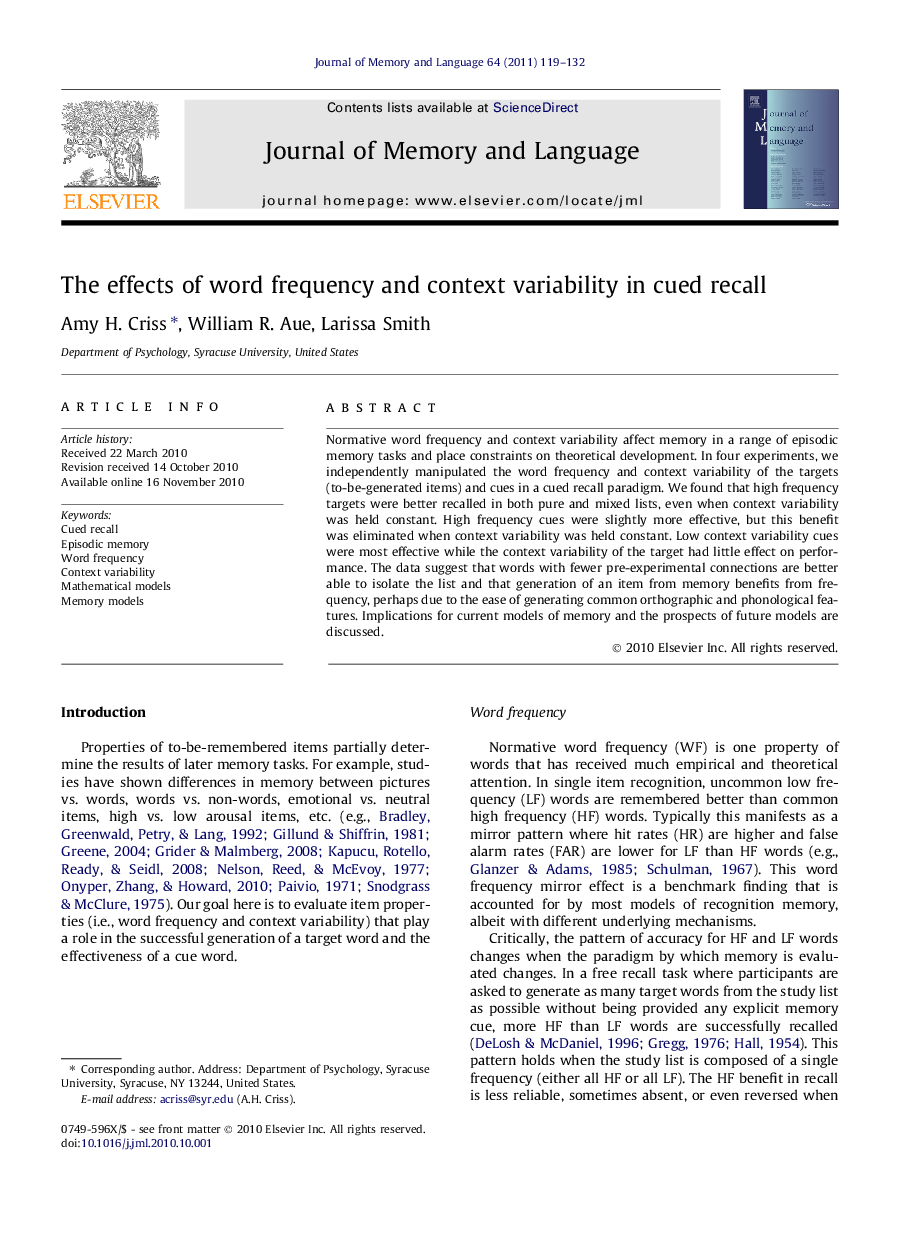| Article ID | Journal | Published Year | Pages | File Type |
|---|---|---|---|---|
| 932127 | Journal of Memory and Language | 2011 | 14 Pages |
Normative word frequency and context variability affect memory in a range of episodic memory tasks and place constraints on theoretical development. In four experiments, we independently manipulated the word frequency and context variability of the targets (to-be-generated items) and cues in a cued recall paradigm. We found that high frequency targets were better recalled in both pure and mixed lists, even when context variability was held constant. High frequency cues were slightly more effective, but this benefit was eliminated when context variability was held constant. Low context variability cues were most effective while the context variability of the target had little effect on performance. The data suggest that words with fewer pre-experimental connections are better able to isolate the list and that generation of an item from memory benefits from frequency, perhaps due to the ease of generating common orthographic and phonological features. Implications for current models of memory and the prospects of future models are discussed.
